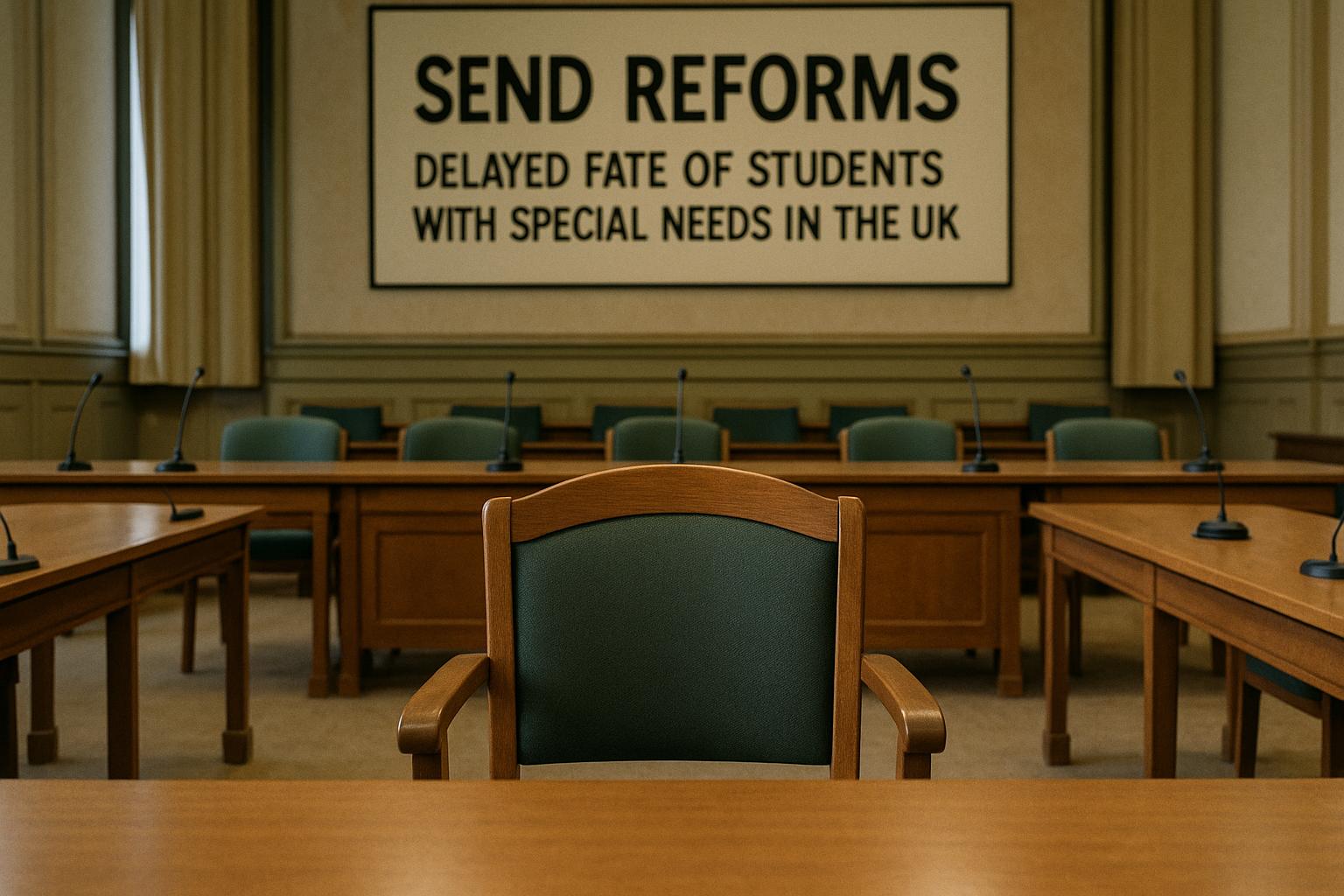The UK Department for Education has announced a delay in the publication of the much-anticipated white paper outlining comprehensive reforms to special educational needs and disabilities (SEND) policy and law. Initially scheduled for release in the autumn, the white paper will now be published early in 2026. Education Secretary Bridget Phillipson conveyed this decision in a letter to Helen Hayes, chair of the Commons education select committee, explaining that the postponement allows for extended collaboration with families, teachers, and experts to ensure the proposals effectively address those most impacted by SEND issues.
This announcement follows the Commons education select committee’s recent report, "Solving the SEND Crisis," which emerged from months of hearings and extensive evidence gathering. Phillipson emphasised the importance of co-creation in designing the reforms, stating that additional time would enable the department to test proposals directly with families and educational professionals. While the delay aims to build a more robust framework, it has sparked concern among stakeholders who are eager for clarity and immediate solutions.
The prospects of reform remain controversial, particularly around the future of existing legal rights for children with special educational needs. Central to this debate are Education, Health and Care Plans (EHCPs), which currently provide legally enforceable support for around half a million children, specifying not only the necessary assistance but also the educational placements provided. The cost of these plans falls to local authorities, many of which have long expressed concerns over escalating financial pressures linked to high needs support budgets.
Amanda Hopgood, chair of the Local Government Association’s children, young people and families committee, described the delay as "disappointing," highlighting the strain local councils face due to rising deficits in high needs funding. Phillipson’s letter stops short of clarifying whether existing legal protections under EHCPs will be maintained but reassures that specialist provision within mainstream education will continue to be supported, with clear legal safeguards for children and parents.
Adding fuel to the ongoing debate, a report released by the Institute for Public Policy Research (IPPR) on the same day describes the current SEND support system as being in crisis. The IPPR highlights a striking 250% surge in EHCP assessments since 2014, with more than 105,000 assessments performed in 2024 alone. However, less than half met the statutory requirement of being completed within the mandated 20-week timeframe. The report advocates for the introduction of a new Additional Learning Support system within schools, recommending that existing EHCPs remain in effect until this new framework is fully operational. It also underscores the urgent need for increased investment in teacher training and recruitment of SEND specialists to adequately support pupils with additional needs.
The IPPR’s "Breaking the Cycle" report controversially suggests that EHCPs and their associated statutory entitlements could eventually be phased out, a position that aligns with speculation from some senior advisers within the Department for Education. The Transformative Plan envisages a departure from the current EHCP system to one that might be less reliant on legal entitlements, ostensibly to break the cycle of increasing demands and costs. However, these ideas have yet to be formally adopted, and the Department’s delay likely reflects the sensitivity and complexity of making such fundamental changes.
Concerns have also been raised regarding the future role of the SEND Tribunal, which currently adjudicates disputes related to SEND provision and EHCPs. Although it was reported earlier this year that its status could be under threat, Phillipson’s letter does not address this issue, leaving uncertainty about potential changes in legal recourse for families.
The delay reflects a broader recognition, acknowledged by Dame Christine Lenehan, the Department for Education’s strategic adviser on SEND, of the need for careful development amid what she has described as a "vacuum of information" about the forthcoming reforms. Lenehan stresses the importance of thorough testing and stakeholder engagement to ensure that the changes are practical and truly beneficial.
The SEND Inclusion in Education Expert Group, established in late 2024 to advise on improvements in mainstream education for children with SEND, is playing a key role in shaping the reforms. The group focuses on enhancing inclusive classroom practices, better identification of SEND, and strengthening support systems within mainstream educational settings.
Charities such as Contact, which supports families with disabled children, have welcomed the government’s commitment to inclusive consultation and co-creation of the reforms, hoping this approach will lead to policies that reflect the real needs and lived experiences of children and families.
As the publication of the white paper moves into the new year, stakeholders across the educational and local government sectors await greater clarity on the future direction of SEND support. The balancing act between financial sustainability, legal rights, and effective, inclusive education remains delicate, making the outcomes of these reforms critical for hundreds of thousands of children and their families.
📌 Reference Map:
- Paragraph 1 – [1] (Law Gazette), [3] (IPSEA), [4] (TES), [5] (Contact)
- Paragraph 2 – [1] (Law Gazette)
- Paragraph 3 – [1] (Law Gazette), [5] (Contact)
- Paragraph 4 – [1] (Law Gazette)
- Paragraph 5 – [1] (Law Gazette)
- Paragraph 6 – [2] (IPPR)
- Paragraph 7 – [1] (Law Gazette), [2] (IPPR)
- Paragraph 8 – [1] (Law Gazette)
- Paragraph 9 – [6] (TES)
- Paragraph 10 – [7] (GOV.UK)
- Paragraph 11 – [5] (Contact)
- Paragraph 12 – [1] (Law Gazette), [2] (IPPR), [5] (Contact), [6] (TES)
Source: Noah Wire Services
